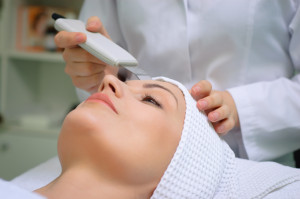Tips for healthy skin
Don’t have time for intensive skin care? You can still pamper yourself by acing the basics. Good skin care and healthy lifestyle choices can help delay the natural aging process and prevent various skin problems.
- Protect yourself from the sun
One of the most important ways to take care of your skin is to protect it from the sun. A lifetime of sun exposure can cause wrinkles, age spots and other skin problems
- Use sunscreen.Use a broad-spectrum sunscreen with an SPF of at least 15. Apply sunscreen generously, and reapply every two hours — or more often if you’re swimming or perspiring.
- Wear protective clothing.Cover your skin with tightly woven long-sleeved shirts, long pants and wide-brimmed hats. Also consider laundry additives, which give clothing an additional layer of ultraviolet protection for a certain number of washings, or special sun-protective clothing which is specifically designed to block ultraviolet rays.
- Don’t smoke
Smoking makes your skin look older and contributes to wrinkles. Smoking narrows the tiny blood vessels in the outermost layers of skin, which decreases blood flow. This depletes the skin of oxygen and nutrients that are important to skin health.
- Treat your skin gently
Daily cleansing and shaving can take a toll on your skin. To keep it gentle:
- Limit bath time.Hot water and long showers or baths remove oils from your skin. Limit your bath or shower time, and use warm — rather than hot — water.
- Avoid strong soaps.Strong soaps and detergents can strip oil from your skin. Instead, choose mild cleansers.
- Pat dry.After washing or bathing, gently pat or blot your skin dry with a towel so that some moisture remains on your skin.
- Moisturize dry skin.If your skin is dry, use a moisturizer that fits your skin type. For daily use, consider a moisturizer that contains SPF.
- Eat a healthy diet
A healthy diet can help you look and feel your best. Eat plenty of fruits, vegetables, whole grains and lean proteins. The association between diet and acne isn’t clear — but some research suggests that a diet rich in vitamin C and low in unhealthy fats and processed or refined carbohydrates might promote younger looking skin.
- Manage stress
Uncontrolled stress can make your skin more sensitive and trigger acne breakouts and other skin problems. To encourage healthy skin — and a healthy state of mind — take steps to manage your stress. Set reasonable limits, scale back your to-do list and make time to do the things you enjoy.
- Acne on face
- Rashes
- Rosacea
- moles
- Etching of skin
- Hair loss
- Hair treatment
- Wrinkles
- Spots on skin
- Pimples
- Cosmetic Dermatologist in pune - January 21, 2023
- Essential Vitamins for Beautiful Skin - July 31, 2015
- Benefits of Turmeric for Skin - July 30, 2015

